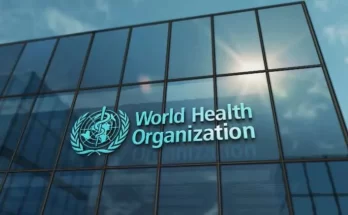Table of Contents
For over a decade, the African Tax Administration Forum (ATAF) and the African Development Bank (AfDB) have joined forces to drive Africa’s development through innovative resource mobilisation strategies.
This collaboration underscores the critical role of domestic resource mobilisation (DRM) in funding national development goals and achieving the Sustainable Development Goals (SDGs).
The partnership focuses on refining Africa’s tax systems by improving tax policies, enhancing administrative efficiency, and streamlining filing processes.
Rather than introducing new taxes or raising rates, the aim is to optimise existing systems. By doing so, governments can unlock significant revenues to invest in key areas like healthcare, education, and infrastructure.
Key Initiatives and Achievements
ATAF and AfDB have formalised their efforts through impactful programs like the Regional Institutional Support Project on Public Financial Governance (RISPFG).
These initiatives have advanced tax administration, curbed illicit financial flows, and promoted gender inclusion through projects like the ATAF Women in Tax Network (AWITN).
The RISPFG projects have delivered substantial results. The first phase strengthened tax administration and public finance management in several African nations through technical assistance and peer learning.
Building on this success, Phase II expands efforts to foster sustainable and inclusive growth by bolstering public finance systems and DRM.
One notable achievement is the DRM study for Central Africa, which provides critical revenue and customs data for countries like Cameroon, Chad, and the Democratic Republic of Congo.
This data-driven approach informs strategic decisions, empowering tax administrations and policymakers to plan effectively for regional development.
South Africa Adopts Global Minimum Tax Law
Driving Sustainable Growth
ATAF’s Executive Secretary, Mr. Logan Wort, highlights the partnership’s transformative impact:
“By improving tax systems and tackling illicit financial flows, we are enabling African countries to fund their development agendas sustainably. Together with the AfDB, we’re building a resilient and inclusive future for Africa.”
As the partnership evolves, plans are underway to deliver specialised support to regional member countries (RMCs). This includes technical assistance in fiscal policy, tax transparency, capacity building, and managing tax expenditures.
Expanding Impact in Central Africa
The collaboration’s reach continues to grow, especially in Central Africa. Initially involving Cameroon, Chad, and the Democratic Republic of Congo, the DRM project now extends to include Gabon, the Central African Republic, and Congo.
These efforts align with ATAF’s flagship publication, the African Tax Outlook (ATO), which provides comprehensive data and actionable recommendations to guide reforms and improve tax systems across the region.
The regional DRM report will serve as a vital resource for policymakers, tax practitioners, and administrators.
It will analyse trends in revenue collection, evaluate tax administration performance, and offer targeted recommendations to strengthen systems, ensuring long-term economic sustainability.
Looking Ahead
ATAF and AfDB remain committed to deepening their impact and expanding their reach across Africa. By fostering resilient tax systems and strengthening resource mobilisation, this partnership is helping African nations chart a path toward self-sufficiency and sustainable development.




